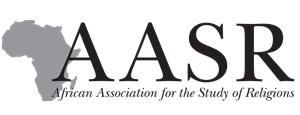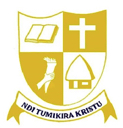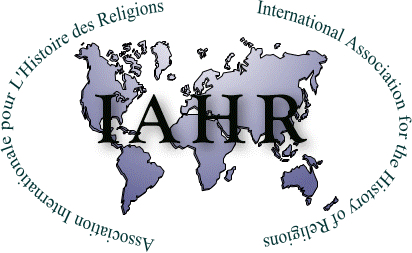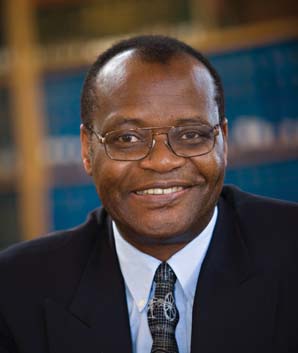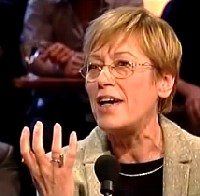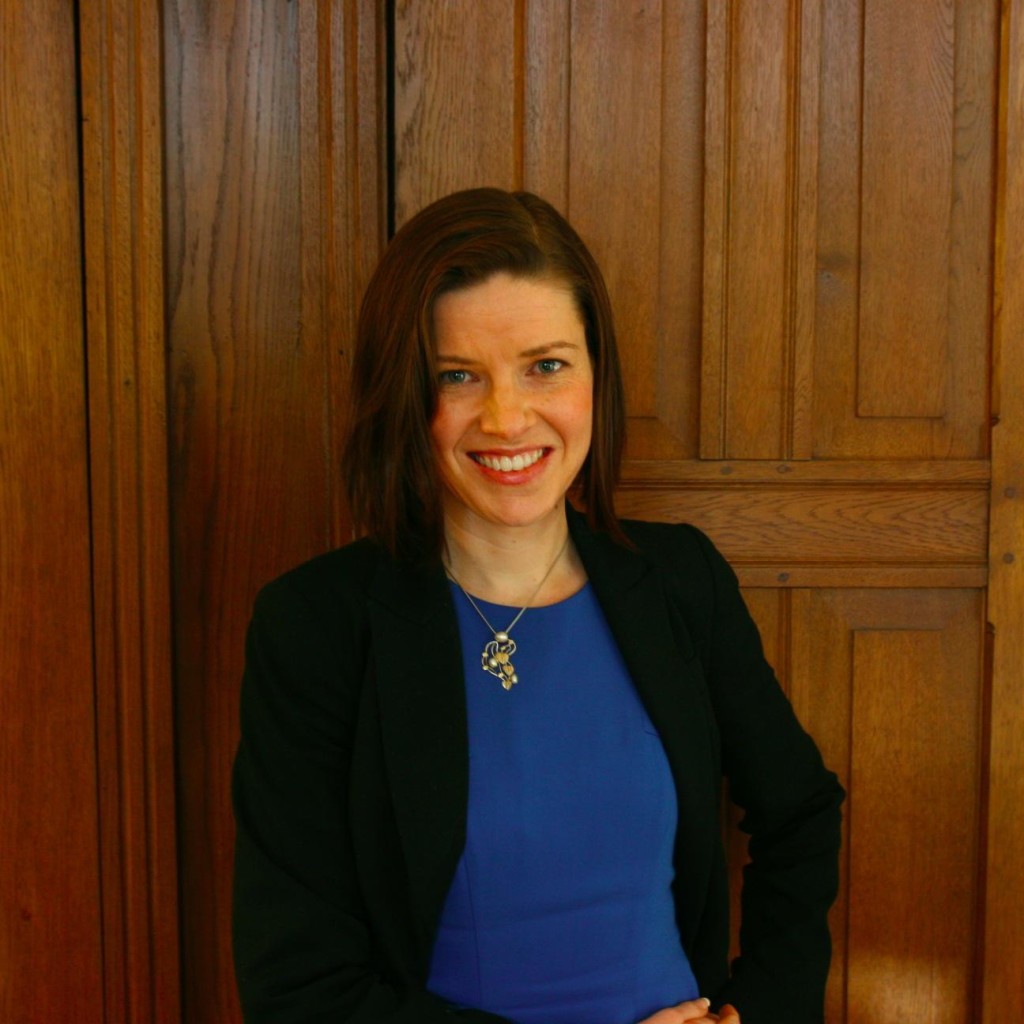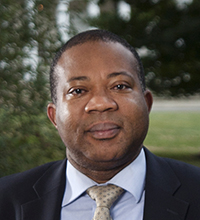2018
19th Annual Africa Conference at The University of Texas at Austin – March 29 – 31, 2019
The 2019 Africa Conference will critically examine the highly intricate and contested processes of identity formation and its significance for African societies. Furthermore, the conference will engage with discussions on identities that are intimately linked to notions of African diaspora across the Atlantic, the Mediterranean, and the Indian Ocean. The primary aim of the conference is to reflect on the varying and varied forms of social practices and processes through which identities are constructed, contested, negotiated, and reconfigured in relation to one another. Simultaneously, the conference intends to create an intellectual space for examining the politics of identity that systematically marginalizes, excludes, disempowers, and denudes certain social groups. Beyond the specific emphasis on Africa, the overarching focus of the conference is to engage with different theoretical inflections that have emerged in the existing scholarship on imbricated identities as well as to probe into the ways in which they have been challenged and reformulated within the academia.
See the Call for Papers for further information
2018
CfP: 2018 Fela Anikulapo Kuti Int’l Conference on African Homelands and Social Theory (10-11th Oct)
CENTRE FOR BLACK ORIENTATION AND AFRICAN CONSCIOUSNESS, CEBOAC, IBADAN, NIGERIA
AND RELIGIOUS STUDIES DEPARTMENT, UNIVERSITY OF IBADAN, IBADAN.
In collaboration with DOMINICAN UNIVERSITY, SAMONDA, IBADAN.
Presents
2018 FELA ANIKULAPO KUTI INTERNATIONAL CONFERENCE ON AFRICAN HOMELANDS AND SOCIAL THEORY
(A 2-Day International Conference in Honour of Fela Anikulapo Kuti)
CONFERENCE THEME:
Religion-State Relationship in Postcolonial Africa: Issues, Contexts and Perspectives
VENUE: UNIVERSITY OF IBADAN, IBADAN.
DATE: 10 -11TH OCTOBER, 2018
TIME: 10:00AM DAILY
CONFERENCE OVERVIEW: Fela Anikulapo Kuti International Conference on African Homelands and Social Theory is an annual international conference that brings together academicians and research scholars in African and Diaspora Studies and importantly researchers in the Fela phenomenon. The international conference provides the medium and opportunity to exchange ideas, share knowledge, and develop academic researches done in the gear of decolonizing knowledge in the African educational system and with the sole aim of adding values to knowledge production in its Africanity. The conference seek to promote intellectualism in its Africaness, Culture education and traditions of African homelands and the diaspora. In fulfilling this, while the international conference provides an environment for cross- fertilization of ideas to produce knowledge and new thoughts and philosophies, the conference as well accommodates political education for the decolonization of African homelands as a step to rescue the westernization of education in Africa.
CALL FOR PAPERS
The 2018 FELA ANIKULAPO KUTI INTERNATIONAL CONFERENCE ON AFRICAN HOMELANDS AND SOCIAL THEORY is planned to feature paper presentations on some selected thematic issues relating to the concept note. Participants are invited from different fields and practices including: religious studies, music, theatre and film, literary and cultural studies, political science, sociology, history, philosophy and other related areas. The paper abstract must not be more than 300 words.
KEYNOTE SPEAKER AT THE OPENING CEREMONY
Professor Toyin Falola, University of Texas at Austin, USA
LEAD PAPER PRESENTERS:
Prof. J.K Ayantayo, Prof. of Christian theology, Head, Department of Religious Studies, U.I
Prof. Anthony Akinwale, Vice- Chancellor, Dominican University, Samonda, Ibadan
CONFERENCE CHAIR
Emeritus Professor Femi Osofisan, University of Ibadan.
THEMATIC ISSUES: Conference papers will cover the under listed thematic issues:
a. Religion, International political system and Africa
b. Religion, Ideology and Nationalism
c. Religion and Philosophy
d. Religion and Music in the African Context
e. Religion and Language in the African Perspective
f. Religion and Conventional Thoughts
g. Religion, Education and Law
h. Historiography of Religion within the African Context
i. Comparative Approach to Non-African and African Belief Systems
j. Religion and Emerging Gender Issues
k. Religion, Terrorism, Peace and Strategic studies
l. The Foreign in African Traditional Religions
m. Religion and Humanity in the African Context
n. Political economy of religion
o. Comparative Study on Religion, Spirituality and Culture
p. Religion and African mystery system
q. Religion and Secret societies
r. Religion, methodology and politics of knowledge production
s. Religion, Postcolonial Africanities and human development
t. Religion, Secularism and globalization
u. Religion and Environmental issues
v. Religion, Archaeology and social Anthropology
w. Religion and classical studies
Prospective paper presenters are to adhere strictly to the APA Format for writing research papers.
Abstracts and full papers can be submitted by email to the Conference Convener, Olusegun Michael Ogundele at mcmikewrights@gmail.com or to the official conference email address: felaconference@gmail.com
IMPORTANT DATES
Publicity: 15th May, 2018
Deadline for submission: 5th August, 2018
Notification of acceptance: 19th August, 2018
Deadline for final paper submission: 5th September, 2018
Conference date: 10- 11 October, 2018
The international conference will have as part of its special features A FRENCH PANEL. This French panel is being sponsored by IFRA- NIGERIA and Alliance Francais, Ibadan. Papers to be presented at this French panel will be submitted in French Language, especially to encourage participation from African research scholars in Francophone countries. Presentation at the panel will be in French language. There is as well a possibility for a French translator to English Language so that the parallel session will not close its door against other participants in the conference.
CONTACT PERSONS FOR THE ORGANISATION OF THE FRENCH PANEL:
Dr. Nicolas Michelland, Director, Alliance Francaise, Ibadan, Nigeria
Dr. Elodie Apard, Director, French Institute for Research in Africa, University of Ibadan, Ibadan.
Prof. Tunde Ayeleru, Head, Department of European Studies, University of Ibadan, Ibadan.
Prof. Anthony Akinwale, Vice Chancellor, Dominican University, Samonda, Ibadan.
OLUSEGUN MICHAEL OGUNDELE
Conference Convener
07066249160
2018
CfP for Panel 182: The Religion of the Orishas, 18th IUAES World Congress, 16-20 July, Florianopolis, Brazil
Between January 8th and February 28th 2018, the registered participants will be able to submit their paper proposal to the 18th IUAES (International Union of Anthropological and Ethnographic Sciences) World Congress at Universidade Federal de Santa Catarina, Florianopolis, Brazil, and in particular to Open Panel 182: The Religions of the Orishas
The panel is on the religions of the orishas in various contexts – diasporas and re(creation) of African heritage in the sacred space
This panel discusses various links, forms and faces of the African origin religions in the contemporary world. We would like to invite scholars doing their research on the religions of the orixás (orishas) in their different dimensions, such as: ritual, cultural and symbolic production (music, body and dance);function of technology; (re)creation of social relations and connections; relations between religion and gender, sexuality, public policies, context of production of the heritages, intolerances, migration processes and religious transnationalization.
Open pannel number 182 is coordinated by Prof Dr Joana Bahia (State University of Rio de Janeiro) < joana.bahia@gmail.com > and Prof Dr Renata Siuda-Ambroziak (Universidade de Varsóvia/Universidade Federal de Santa Catarina) < r.siuda@uw.edu.pl >
Informations about registrations see : http://www.pt.iuaes2018.org/cronograma and also http://www.iuaes2018.org/inscricoes/capa
2017
Cfp: Religion and the 21st Century City
University of Ghana
DEPARTMENT FOR THE STUDY OF RELIGIONS
In Collaboration With
SCHOOL OF ARTS
Call for Papers for an International Conference on
RELIGION AND THE 21ST CENTURY CITY: OPENINGS AND CLOSURES
University of Ghana, 20th-22nd June, 2018
Extended deadline for submission of abstracts: 15 February 2018
For full details, see the Call for Papers
2017
8th AASR Conference in Africa: Zambia 2018
_____________________________________________________________________
8th AASR CONFERENCE IN AFRICA
REVISITING RELIGION, POLITICS, AND THE STATE IN AFRICA AND THE AFRICAN DIASPORA
THE UNIVERSITY OF ZAMBIA AND JUSTO MWALE UNIVERSITY
LUSAKA, ZAMBIA
1 – 4 AUGUST 2018
The African Association for the Study of Religions (AASR) invites proposals for individual papers, panels, roundtables, and poster presentations for its biennial conference to be held at the Justo Mwale University, Lusaka, Zambia, from 1 – 4 August 2018. This Conference is co-sponsored by the International Association for the History of Religions (IAHR) and is recognized as an IAHR Regional Conference.
Conference Flyer
(Click to view and download PDF)
_____________________________________________________________________
CALL FOR PAPERS
Globally, there is recognition of tensions arising out of increased levels of inequality, anxieties about migration, citizenship, and belonging, and the concomitant democratic recession. The reality and consequences of inequity and democratic backsliding have gained momentum in Africa as well. The ‘Africa Rising’ euphoria has waned because economic growth has eluded large sections of society, depriving Africans of peace and security, and resulting in a fertile ground for political instability and leadership crises. Poverty and inequality are linked to the human rights and development debate, in the wake of exclusionary political practices, which have dispossessed citizens of the rights to equal participation in negotiating the social, economic, political, and cultural realities of their communities. Religious leaders, generally still regarded as the most trusted leaders in society, are under pressure to respond to this evolving situation. It is within this context, that the AASR seeks to revisit the relationship between religion(s), politics, and (non)state actors in Africa and the African Diaspora, to improve our understanding of how various actors and institutions are responding to the current challenges, and envisage their role in the future.
The conference invites panel and paper proposals that address this theme and related issues, taking into consideration the specific contexts of Africa and the African diaspora. Papers that engage any of the following themes, and related ones, are invited for presentation at this conference:
- Methodological and Theoretical Perspectives: Media and religion; Religion, law, and human rights; Political implications of academic research; Methods for researching African states and political actors
- Religion and Politics: Comparative studies of religion and states in Africa; Poiliticization of religion and religionization of politics; Religion in quest and exercise of power; Religion and solutions to political crises
- Religion and Society: Secular constitutions and/in religious nations; Society and religious pluralism; Religion for education in African States; Social responsibility
- Social Cohesion: Religion, Citizenship, Identity, and Nationalism: Gender and leadership; The politics of sexuality; Internal migrations and refugees in Africa; Religion and Xenophobia; Citizenship and land; Citizenship and difference; Religious nations
- Religion, Violence, Security, and Peacebuilding: Religion and radicalization; Religion and solutions to security and peace
- Religion and Sustainable Development: Their role and impact of the African on the State(s) in Africa; African politico-economies and religious landscapes
- Diaspora in the context of: Retentions and transformations in the Atlantic World; International and Mediterranean immigration; Religious Ministries in the Diaspora
PROPOSAL SUBMISSIONS
- Please use the official Proposal Form.
- All proposals should be emailed to: aasrzambia@gmail.com
- Abstracts should not exceed three hundred (300) words.
- Authors should ensure that abstracts reflect the title of their paper(s).
- Author’s contact details (name, position, institutional affiliation, email address, and phone number) must also be provided.
- The Cfp closed on 16 February 2018. The Local Organizing Committee is currently reviewing and responding to proposals.
For further enquiries, please contact:
Dr. Marja Hinfelaar: marja.hinfelaar@gmail.com
Dr. Judith Ziwa: judith.ziwa@unza.zm
Dr. Elias Kifon Bongmba: bongmba@rice.edu
Dr. Corey Williams: c.l.williams@hum.leidenuniv.nl
_____________________________________________________________________
KEYNOTE SPEAKER
Muna B. Ndulo
Professor of Law; Elizabeth and Arthur Reich Director, Leo and Arvilla Berger International Legal Studies Program; Director of the Institute for African Development, Cornell University.
PROFESSIONAL BIOGRAPHY
Muna Ndulo is an internationally recognized scholar in the fields of constitution making, governance and institution building, international criminal law, African legal systems, human rights, and international law and foreign direct investments. He has published 19 books, 29 book chapters and over 100 articles in academic journals. He is Honorary Professor of Law, Faculty of Law, University of Cape Town, Extraordinary Professor of Law, University of the Free State South Africa, Extraordinary Professor of Law, University of the Western Cape, South Africa, and was formerly Professor of Law and Dean of the School of Law at the University of Zambia. He has been an arbitrator under International Chamber of Commerce (ICC).
Professor Ndulo has served as a Legal Officer in the International Trade Law Branch of the United Nations Commission on International Trade Law (UNCITRAL), Political and Legal Adviser with the United Nations Mission Observer Mission in South Africa (UNOMSA) and to the Special Representative of the United Nations Secretary General to South Africa, Legal Adviser to the United Nations Assistance Mission to EAST Timor (UNAMET), Legal Expert to the United Nations Mission to Kosovo (UNAMIK), and Legal Expert to the United Nations Mission to Afghanistan (UNAMA).
He has acted as consultant to the African Development Bank (ADB), World Bank, Economic Commission for Africa (ECA), United Nations Development Program (UNDP), National Democratic Institute (NDI) United Sates Institute for Peace (USIP) and International Development Law Organization (IDLO). He has also acted as consultant to the Kenya 2010 Constitutional Process, Zimbabwe Constitutional Process, Somalia, and Sudan.
Professor Ndulo is founder of the Southern African Institute for Public Policy and Research (SAIPAR) and member of its Board of Directors. He is also a member of the Board of the African Association of International Law, the Advisory Committee of Human Rights Watch Africa, and he formerly served as Chairperson for Gender Links, a South African NGO.
_____________________________________________________________________
PLENARY SPEAKERS
Gerrie ter Haar
Gerrie is emeritus professor of Religion and Development at the International Institute of Social Studies (ISS) of Erasmus University Rotterdam. A scholar of religion specialising in the religious traditions of Africa and the African diaspora, she has authored or edited more than twenty books, including translations into French, Italian, Spanish and Japanese. She is currently co-editor of the book series Religion in Modern Africa (Routledge). She has published in a wide range of academic and professional journals and has served on various editorial boards. Apart from specific themes in African religions, her publications reflect her main research interests over the years: development, human rights, conflict and peace, religion and politics, religion and migration.
Gerrie ter Haar has held many international positions, including as Vice-President of the International Association for the History of Religions (IAHR). In 2005 she was the Academic Programme Director of the XIXth IAHR World Congress in Tokyo. She is also a founding member of the African Association for the Study of Religions (AASR). Gerrie has a wide experience of media work, both national and international, and continues to participate in public debates on issues concerning the role of religion in contemporary society. She has been a consultant to international bodies and been active in formulating policy advice for several government bodies and international organisations. In her previous career Gerrie worked at Utrecht University and for the Dutch section of Amnesty International, from where she retains a strong interest in human rights.
Erin Wilson
Dr. Erin K. Wilson is Director of the Centre for Religion, Conflict and the Public Domain and Associate Professor of Religion and Politics, Faculty of Theology and Religious Studies, University of Groningen, The Netherlands. Her research is positioned at the intersection of religious studies and International Relations, with particular interest in the impact of secular worldviews in areas of global justice, human rights, forced migration, development and gender, and the development of alternative theoretical frames beyond ‘religious’ and ‘secular’. Her books include The Refugee Crisis and Religion: Secularism, Security and Hospitality in Question (co-edited with Luca Mavelli, Rowman and Littlefield International 2016), After Secularism: Rethinking Religion in Global Politics (Palgrave 2012), and Justice Globalism: Ideology, Crisis, Policy (with Manfred B. Steger and James Goodman, Sage 2013). She has co-edited The religious as political and the political as religious: the blurring of sacred and secular in contemporary International Relations (Special Issue of Politics Religion Ideology), and her articles have appeared in International Studies Quarterly, Journal of Refugee Studies, Globalizations, Politics Religion Ideology and Global Society.
_____________________________________________________________________
SPECIAL SESSION FOR STUDENTS & EARLY CAREER SCHOLARS
ACADEMIC JOBS, GRANTS, AND PUBLISHING
Led by Prof. Afe Adogame, the Maxwell M. Upson Professor of Christianity and Society at Princeton Theological Seminary, USA.
Afe is a leading scholar of the African Diaspora. He holds a PhD in history of religions from the University of Bayreuth in Germany and has served as Associate Professor of World Christianity and Religious Studies, and Director International at the School of Divinity, New College, at The University of Edinburgh in Scotland. His teaching and research interests are broad, but tend to focus on interrogating new dynamics of religious experiences and expressions in Africa and the African Diaspora, with a particular focus on African Christianities and new indigenous religious movements; the interconnectedness between religion and migration, globalization, politics, economy, media and the civil society.
_____________________________________________________________________
MEMBERSHIP DUES
Prospective participants in this conference will be registered as a participant only after they have joined AASR by paying the annual AASR membership dues for 2018:
To join the AASR and/or to pay for AASR annual dues, see: https://www.a-asr.org//membership/
REGISTRATION COSTS
All participants must also pay conference registration costs, which are as follows:
NOTE: The ‘Early Bird Rate’ has been extended to 15 June 2018.
Conference registration includes the following: entrance to the conference, reception, tea breaks and light refreshments, daily lunches, and conference materials (bag and programme).
OPTIONAL EXCURSION
An optional excursion to the Chaminuka Game Reserve nearby Lusaka is being arranged for Saturday, 4 August. The total cost is $50 and can be paid for in advance along with registration costs. For more information about the reserve, see: http://www.chaminuka.com
PAYMENT OPTIONS
- Transfer directly into the AASR central bank account: African Association for the Study of Religions, Bank of Scotland Branch Code: 80-20-00; Account No. 00208442; BIC: BOFSGB21168; IBAN: GB05 BOFS 8020 0000 2084 42
- Paypal: https://www.a-asr.org//membership/
- If the options above are not feasible or too expensive, you may pay directly through your national or regional representative: https://www.a-asr.org//aasr-executive/
Please, contact AASR Treasurer Dr Abel Ugba (abelugba@yahoo.co.uk) if you encounter difficulties making payment or need information about other payment options.
_____________________________________________________________________
ACCOMMODATION OPTIONS
The Local Organising Committee recommends the following accommodation options. Participants are requested to book their accommodation independently by either calling or booking online. In addition to the hotel websites, participants can also book online with sites such as Tripadvisor, Expedia, Booking, etc.
Justo Mwale University
Rates from $15—$60/night
Address: Plot 19 Munali Road, Lusaka, Zambia
Email: secretary@justomwale.net
Website: http://www.justomwale.net/index.php
Mika Lodge
Rates from $60/night
Address: Plot number 106 Central Street, Jesmondine, Lusaka, Zambia
Phone: +260961876570 or +260211291557
Website: http://mikahotels.com/mika-lodge-jesmondine/
Palmwood Lodge
Rates from $80/night
Address: Plot 609 Chudleigh, Lusaka, Zambia
Phone: +260953634880 (room reservations); +260211295411 or +260977895576 (for general enquiries)
Website: http://www.palmwoodlodge.co.zm
Cresta Golfview
Rates from $130/night
Address: GPS coordinates (-15.386530, 28.345195)
Phone: +260211290770
Website: http://crestagolfview.com
Protea Hotel Lusaka
Rates from $150/night
Address: Arcades Shopping Complex Lusaka 10101 Zambia
Phone: +260211254664
Website: https://www.marriott.com/hotels/travel/LUNLS-protea-hotel-lusaka
___________________________________________
ABOUT THE AASR
The African Association for the Study of Religions (AASR) is an academic association that promotes the study of religions in Africa through international collaboration in research, publishing, and teaching. AASR was founded in 1992 in Harare, Zimbabwe at a Regional Conference of the International Association for the History of Religions (IAHR). The AASR has been an affiliate organization of the IAHR since 1995. In particular, the AASR aims to stimulate the academic study of religions in Africa in the following ways:
- By providing a forum for multilateral communications between scholars of African religions
- By facilitating the exchange of resources and information
- By encouraging international collaboration in research between scholars and institutions in Africa and those outside the continent
- By developing publishing opportunities particularly for scholars based in Africa
- By establishing a travel fund to enable scholars to attend academic conferences
- By organising conferences in Africa and panels on the religions of Africa
- By establishing a newsletter and website to increase communication between scholars of African religions
- By creating a directory of scholars in the field of African religions

